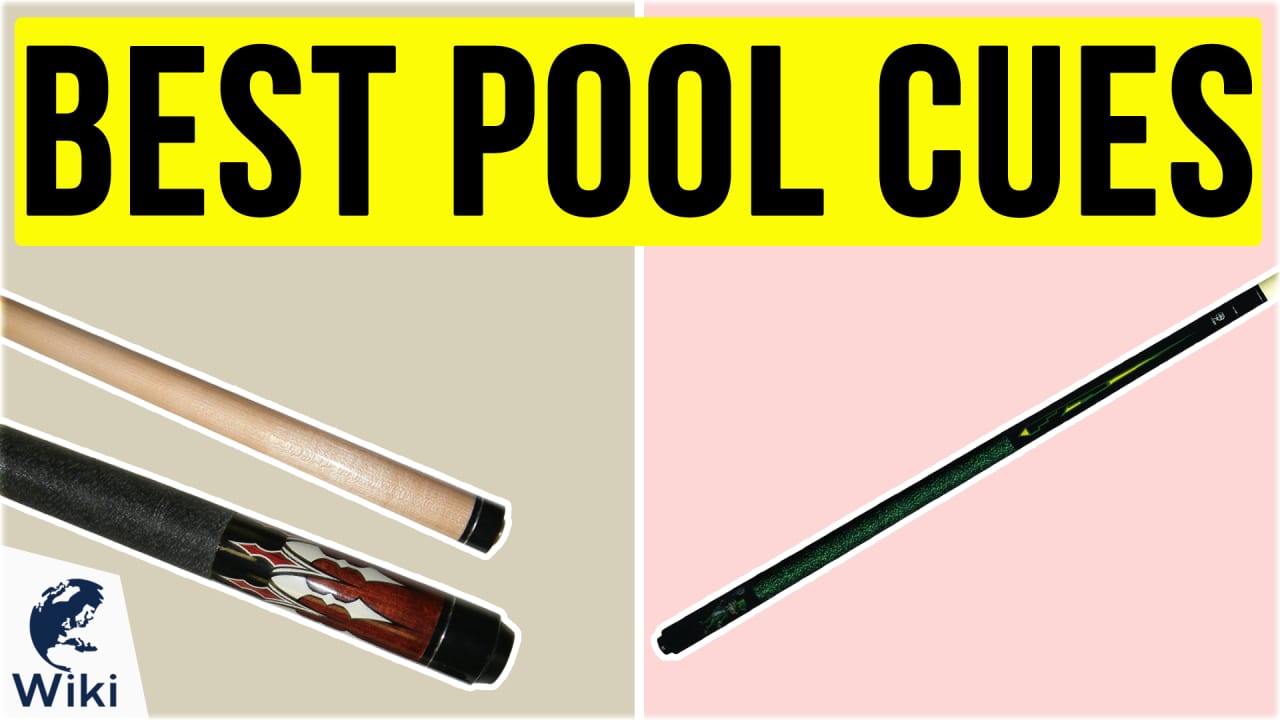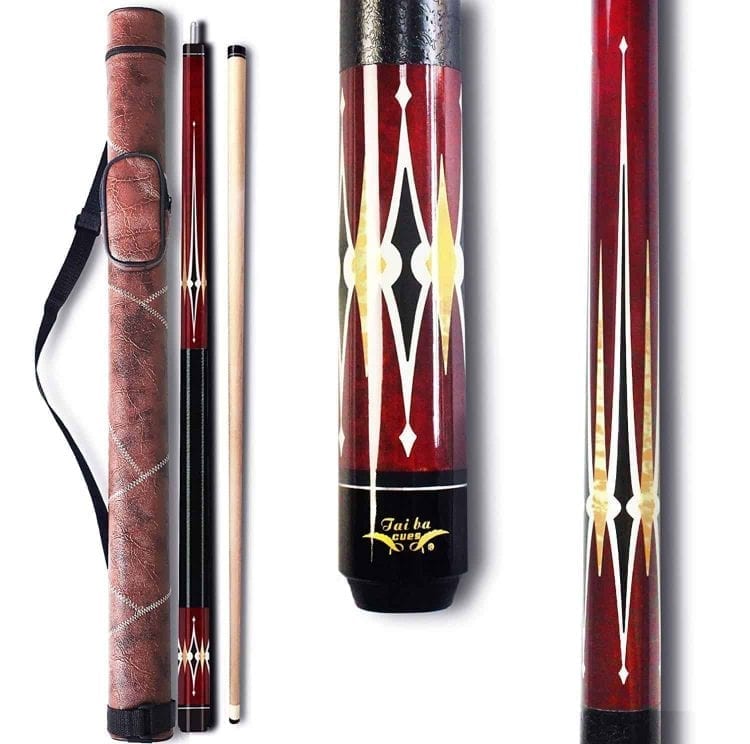Hey there, pool enthusiasts! If you're diving into the world of cue sports or looking to sharpen your skills, then you're in the right place. Today, we're going to break down the best pool tips for cues that will take your game to the next level. Whether you're a newbie or a seasoned player, these tips are designed to help you dominate the table. So, grab your favorite cue stick and let's get started!
Now, before we dive deep into the nitty-gritty, let's talk about why mastering these pool tips matters. Playing pool isn't just about hitting the ball; it's about precision, strategy, and understanding the mechanics of the game. The best pool tips for cues will help you refine your technique and make every shot count. It's all about turning that lucky shot into a skillful one.
In this guide, we'll cover everything from selecting the right cue to mastering advanced techniques. By the end, you'll have a solid foundation to enhance your game and impress your friends at the local pool hall. So, let's jump right in and explore the world of cue sports with these game-changing tips!
Read also:5 Movierulz Your Ultimate Guide To Streaming Movies In 2023
Table of Contents
- Choosing the Right Cue
- Basic Pool Tips for Beginners
- Advanced Techniques to Master
- Cue Maintenance Tips
- Psychological Aspects of Pool
- Common Mistakes to Avoid
- Building a Solid Pool Strategy
- Selecting the Perfect Pool Table
- Training Drills for Improvement
- Conclusion: Becoming a Pool Pro
Choosing the Right Cue
Alright, let's start with the basics—your weapon of choice, the cue stick. Choosing the right cue is crucial because it can significantly impact your game. A good cue stick should feel balanced in your hands and provide the right amount of control. Here are some factors to consider:
Cue Material
Most cues are made from wood, but there are variations like fiberglass and carbon fiber. Wooden cues offer a traditional feel and are preferred by many professionals. However, if you're looking for durability, carbon fiber might be the way to go. The choice depends on your playing style and budget.
Cue Weight
The weight of your cue can affect your accuracy and power. Generally, cues range from 17 to 21 ounces. A lighter cue is great for finesse shots, while a heavier cue can pack a punch. Experiment with different weights to find what feels best for you.
Remember, the best pool tips for cues start with selecting a cue that complements your playing style. It's like finding the perfect pair of shoes—it has to fit just right!
Basic Pool Tips for Beginners
For those just starting out, here are some fundamental tips to help you build a strong foundation:
Read also:Hdhub4u Movies Your Ultimate Streaming Hub Unveiled
- Stance: Your stance is crucial for stability. Keep your feet shoulder-width apart and lean forward slightly. This position allows for better balance and control.
- Grip: Hold the cue loosely but firmly. A death grip will only lead to tension and missed shots. Let your wrist move naturally.
- Aim: Focus on the spot where you want to hit the cue ball. Visualization is key in pool. Imagine the path the ball will take before making your shot.
These basic pool tips might seem simple, but they form the backbone of a successful game. Mastering the basics will set you up for more advanced techniques down the line.
Advanced Techniques to Master
Once you've got the basics down, it's time to level up with some advanced techniques:
Spin Control
Using spin can dramatically change the outcome of your shots. For instance, applying topspin can make the cue ball roll forward after hitting the object ball, while backspin can make it stop or even roll backward.
Bank Shots
Bank shots involve bouncing the ball off the rail to hit your target. This technique requires a good understanding of angles and can be a game-changer in tight situations.
These advanced techniques require practice and patience, but they'll definitely elevate your game. Remember, the key is consistency and repetition.
Cue Maintenance Tips
Just like any tool, your cue stick needs regular maintenance to perform at its best:
- Chalk the Tip: Always chalk your cue tip before every shot. This prevents miscues and ensures better contact with the cue ball.
- Clean the Shaft: Use a soft cloth to clean the shaft after each session. This prevents buildup and keeps your cue in top condition.
- Store Properly: Store your cue in a cool, dry place. Avoid leaving it in direct sunlight or extreme temperatures, as this can warp the wood.
By following these cue maintenance tips, you'll extend the life of your cue and maintain its performance. A well-maintained cue is a happy cue!
Psychological Aspects of Pool
Pool isn't just a physical game; it's also a mental one. Here are some psychological tips to keep in mind:
Focus and Concentration
Stay focused on the game and block out distractions. A clear mind can make all the difference between a good shot and a great one.
Handling Pressure
Pressure is inevitable, especially in competitive settings. Practice deep breathing and visualization techniques to stay calm under pressure.
The psychological aspects of pool often go overlooked, but they play a significant role in your overall performance. Remember, it's not just about the cue—it's about the player behind it.
Common Mistakes to Avoid
Even the best players make mistakes. Here are some common ones to watch out for:
- Rushing Shots: Taking your time is crucial. Rushing can lead to poor aim and missed opportunities.
- Ignoring Position Play: Positioning the cue ball for your next shot is just as important as hitting the object ball.
- Overconfidence: Confidence is good, but overconfidence can lead to careless errors. Stay humble and focused.
Avoiding these common mistakes will help you maintain consistency and improve your game over time.
Building a Solid Pool Strategy
A strong strategy can make or break your game. Here are some tips to help you build a winning strategy:
Planning Ahead
Think several shots ahead. This foresight can help you navigate through complex situations on the table.
Defensive Play
Sometimes, the best offense is a good defense. Use defensive shots to put your opponent in a tough spot and gain the upper hand.
Building a solid pool strategy involves a mix of offensive and defensive plays. It's all about adapting to the situation and making the best decisions possible.
Selecting the Perfect Pool Table
Your pool table can impact your game just as much as your cue. Here are some tips for selecting the right one:
Table Size
Standard pool tables come in sizes like 7-foot, 8-foot, and 9-foot. Choose a size that fits your space and playing style.
Table Material
Look for tables with a slate bed for optimal play. Slate provides a smooth, even surface that enhances ball movement.
Selecting the perfect pool table is about finding one that suits your needs and preferences. A good table can make all the difference in your gaming experience.
Training Drills for Improvement
Practice makes perfect, and these drills will help you improve:
- Accuracy Drills: Set up a single ball and practice hitting it into different pockets from various angles.
- Positioning Drills: Focus on positioning the cue ball for your next shot. This will help you develop better control.
- Spin Drills: Experiment with different spins to see how they affect the cue ball's movement.
These training drills will help you refine your skills and become a more versatile player. Consistent practice is the key to success in pool.
Conclusion: Becoming a Pool Pro
There you have it, folks! The best pool tips for cues to help you dominate the table. From choosing the right cue to mastering advanced techniques, every tip in this guide is designed to enhance your game. Remember, pool is a game of skill, strategy, and patience. Keep practicing, stay focused, and most importantly, have fun!
So, what are you waiting for? Grab your cue, hit the table, and show the world what you're made of. And don't forget to share your thoughts and experiences in the comments below. Until next time, keep those balls rolling!


